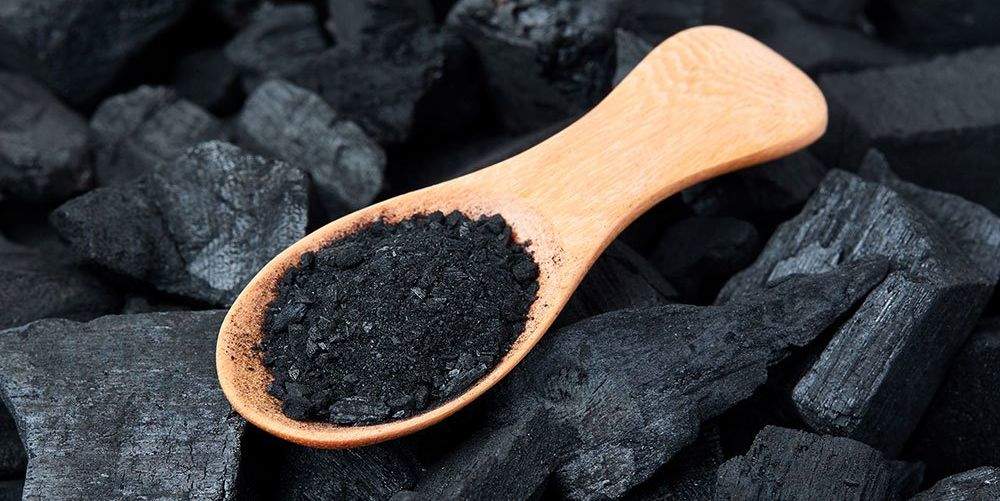Activated charcoal has gained popularity as a natural remedy for teeth whitening, but its safety and effectiveness remain subjects of debate among dental professionals and consumers alike. This article explores the use of activated charcoal for teeth whitening, its potential benefits, drawbacks, and the consensus among experts regarding its safety.
What Is Activated Charcoal?
Activated charcoal is a fine black powder derived from various natural sources such as coconut shells, wood, or peat. It undergoes a process of activation, which involves heating at high temperatures to create pores that increase its surface area and adsorption capacity. This adsorptive property allows activated charcoal to bind to substances, including stains and toxins, making it a popular ingredient in skincare products, supplements, and oral care products.
SEE ALSO: Is Fairywill Teeth Whitening Safe?
Mechanism of Activated Charcoal in Teeth Whitening
In teeth whitening products, activated charcoal is believed to adsorb surface stains and toxins from the teeth, resulting in a brighter smile. Proponents suggest that its porous nature and adsorptive capacity can effectively remove pigments that cause discoloration, such as those from coffee, tea, and wine.
Potential Benefits of Activated Charcoal for Teeth Whitening
1. Natural Whitening Alternative: Activated charcoal is often marketed as a natural alternative to traditional teeth whitening products that may contain peroxide or other chemicals.
2. Stain Removal: Users report visible reduction in surface stains, resulting in a whiter appearance of teeth.
3. Accessibility: Activated charcoal products are widely available over-the-counter in various forms, including powders, toothpaste, and mouth rinses.
4. Cost-Effectiveness: Compared to professional whitening treatments, activated charcoal products may be more affordable for consumers seeking at-home whitening solutions.
Drawbacks And Potential Risks
Despite its popularity, dental professionals and researchers highlight several concerns regarding the use of activated charcoal for teeth whitening:
1. Abrasive Nature: Activated charcoal is abrasive and may have the potential to wear down enamel over time with frequent use. Enamel erosion can increase tooth sensitivity and susceptibility to decay.
2. Effectiveness: Scientific evidence supporting the effectiveness of activated charcoal in whitening teeth is limited and largely anecdotal.
Clinical studies are needed to validate its whitening claims.
3. Messy Application: Powdered charcoal products can be messy to use and may leave residue on teeth, gums, and bathroom surfaces.
4. Safety Concerns: The long-term effects of using activated charcoal on oral health, including its impact on enamel and gum tissue, require further investigation.
Expert Opinions And Recommendations
Dental professionals advise caution when using activated charcoal for teeth whitening:
American Dental Association (ADA): The ADA does not currently recommend charcoal-based products for teeth whitening due to insufficient evidence of safety and efficacy.
Enamel Concerns: Dentists warn that abrasive agents like activated charcoal can compromise enamel integrity, potentially leading to irreversible damage.
Alternative Whitening Methods: Dentists recommend professionally supervised whitening treatments or ADA-approved whitening toothpaste containing safe concentrations of hydrogen peroxide or carbamide peroxide.
Consumer Guidance
If you choose to use activated charcoal products for teeth whitening:
Use Sparingly: Limit use to once or twice a week to minimize potential enamel wear.
Monitor Sensitivity: Discontinue use if you experience increased tooth sensitivity or gum irritation.
Consult Your Dentist: Seek advice from your dentist before starting any new whitening regimen, especially if you have existing dental conditions or concerns.
Conclusion
While activated charcoal may offer a natural and accessible option for teeth whitening, its safety and efficacy are not fully supported by scientific research. Dental professionals emphasize the importance of informed decision-making and caution against potential risks associated with abrasive agents like activated charcoal. For those seeking brighter smiles, consulting with a dentist and considering ADA-approved whitening methods remains the safest approach to achieving effective and lasting results without compromising oral health.
FAQs
How long does it take for activated charcoal powder to whiten teeth?
The time it takes for activated charcoal to whiten teeth can vary depending on several factors, including the frequency of use, the severity of staining, and individual dental characteristics. Generally, users may notice immediate effects in terms of surface stain removal after the first few uses. However, to achieve noticeable whitening effects, it may take weeks of consistent use.
Key Points:
Initial Results: Surface stains can appear reduced after the first few applications due to the adsorptive action of activated charcoal.
Long-Term Whitening: For more significant whitening results, users typically need to use activated charcoal products regularly over several weeks.
Individual Variability: Results may vary based on individual dental conditions and habits.
Can charcoal ash whiten teeth?
Charcoal ash, which is the residue left after burning charcoal, is not recommended for teeth whitening purposes. Unlike activated charcoal, charcoal ash is not processed or purified, and its safety for oral use is questionable. Charcoal ash may contain impurities, toxins, and abrasive particles that can potentially harm tooth enamel and oral tissues.
Key Points:
Safety Concerns: Charcoal ash is not regulated for oral use and may contain harmful substances.
Abrasive Nature: Ash particles can be abrasive and may contribute to enamel erosion over time.
Recommendation: It’s advised to avoid using charcoal ash for teeth whitening and instead opt for dental products specifically formulated and tested for oral use.

